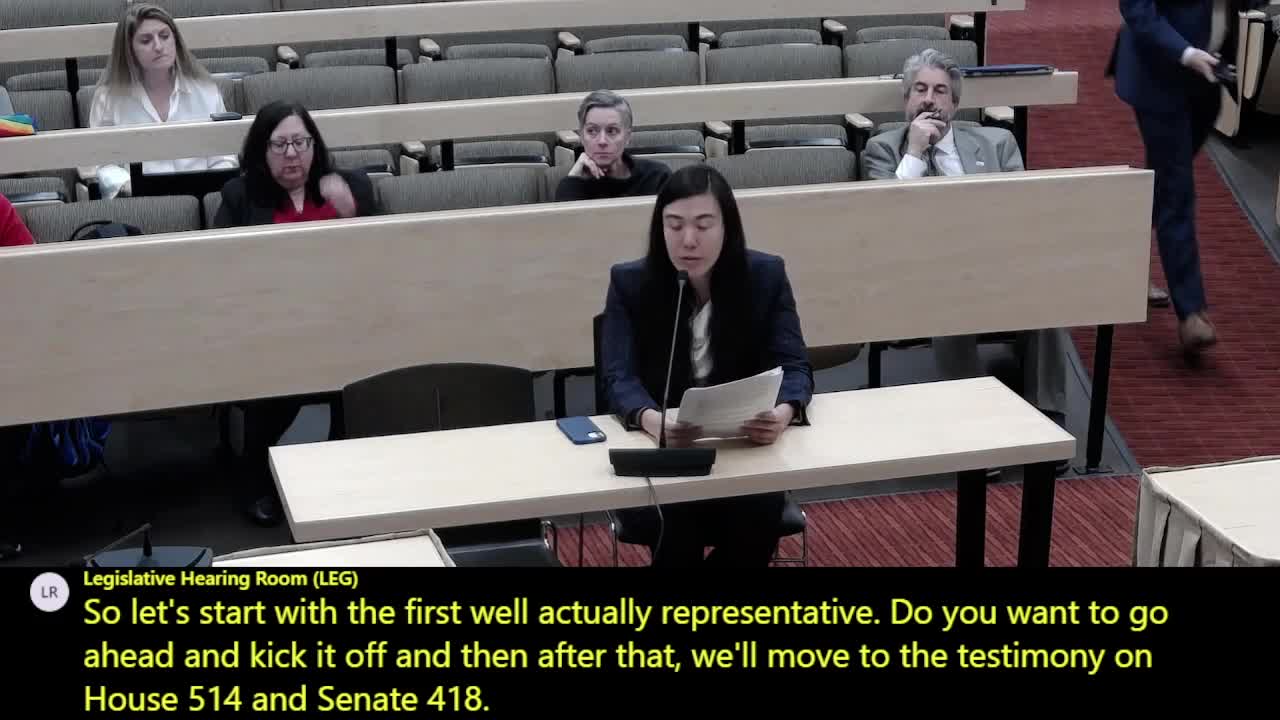Joint committee hears broad support for statewide educator-pay floor of $70,000 teachers, $55,000 paraprofessionals
Get AI-powered insights, summaries, and transcripts
Subscribe
Summary
Lawmakers and dozens of educators and families urged the Joint Committee on Education to report out House 733 and Senate 370, which would establish a $70,000 minimum for classroom teachers and $55,000 for education support professionals, with a multi-year state-funded phase-in and indexing to inflation.
State lawmakers and dozens of educators, union leaders and parents told the Joint Committee on Education during a public hearing that Massachusetts should set a statewide minimum salary of $70,000 for teachers and $55,000 for education support professionals (ESPs).
Sponsors introduced House Bill 733 and Senate Bill 370 as measures intended to raise wages for the Commonwealth’s lowest-paid school employees and to reduce recruitment and retention problems affecting classrooms. Max Page, president of the Massachusetts Teachers Association, said the change was necessary to keep schools staffed and to recruit a more diverse teaching force. "One job should be enough," Page said, summarizing the testimony from rank-and-file members and local leaders.
The bills would set the statewide floors and include a phased funding model to limit immediate local fiscal shock: the state would cover 100% of the increased cost in the first year, followed by a multi-year stepdown (committee testimony described subsequent years at 60%, 40% and 20%), allowing municipalities time to adjust. Sponsors and union witnesses also proposed indexing the floor to inflation to prevent future erosion in purchasing power.
Why it matters: Testimony consistently connected low pay to staffing shortages and student impacts. Witnesses described ESPs’ roles — paraprofessionals, bus drivers, cafeteria workers, custodians and others — as essential to safety, inclusion and daily operations. AFT Massachusetts secretary-treasurer Brent Duncan, a former paraprofessional and teacher, called PSRPs the "unsung heroes" of schools and urged a base wage tied to inflation.
Details from testimony and context
- Proposal: House 733 / Senate 370 would establish a $55,000 floor for ESPs and $70,000 for teachers. - Phase-in funding: Sponsors described a phased state reimbursement (100% initially, then declining percentages over following years) so districts could adapt budgets. The bills as filed and fiscal details were not voted on during the hearing; committee members requested further cost analyses. - Indexing: Sponsors and advocates urged an inflation-index mechanism so the minimum would be adjusted regularly. - Local variation: Several witnesses and legislators described large variation across districts. Somerville was cited as having negotiated much higher starting pay for paraeducators (a local contract cited a $50,000 starting salary that advocates said remains below local living cost in some places). Witnesses reported many ESPs earn far less: testimony referenced an average ESP salary near $35,000 and that roughly 10% of paraeducators earn as little as $15,000. - Costs borne by families and staff: Educators and paraprofessionals described holding second and third jobs, relying on public assistance, and the difficulty of paying student loans and housing costs on current pay. A teacher speaker used a personal budget example showing combined costs (student debt, housing, child care) that can exceed current salaries.
Quotations
- "One job should be enough," Max Page, president, Massachusetts Teachers Association. - "I walked out for them," Marissa Fried, a Cambridge paraprofessional and student teacher, said of striking and testifying on behalf of students and colleagues. - "Love doesn't pay the bills," Alex Rivera Ortiz, paraeducator from Worcester and MTA executive committee member.
Discussion points and outstanding questions
Committee members repeatedly framed the debate around two trade-offs: the policy goal of a statewide living wage versus municipal budget constraints. Legislators asked sponsors for (1) updated cost estimates by district, (2) comparisons with other states that have mandated minima plus state reimbursement, and (3) clarity on how the proposed funding would be administered alongside the Chapter 70 foundation budget.
Sponsors and union leaders proposed a renewed review of Chapter 70 and a dedicated funding approach. Sponsor testimony referenced prior state efforts to set teacher pay floors (a 1980s minimum and later reforms) and the Student Opportunity Act’s impact on needy districts; witnesses tied the current proposal to those historical policy steps.
Formal actions and procedural outcome
The hearing recorded testimony but no committee vote on either bill. At the end of the session the committee motioned and agreed to adjourn the hearing; no roll-call or formal vote on any bill occurred during this hearing.
Ending/next steps
Committee members asked advocates and DESE for additional information about (a) how many teacher-preparation programs currently provide instruction about including nonverbal and AAC-dependent students, (b) updated fiscal cost estimates for the pay floors by district, and (c) examples from other states. Those analyses will inform whether the committee reports the bills out favorably and how the Legislature might structure state funding to cover the proposed floors.
